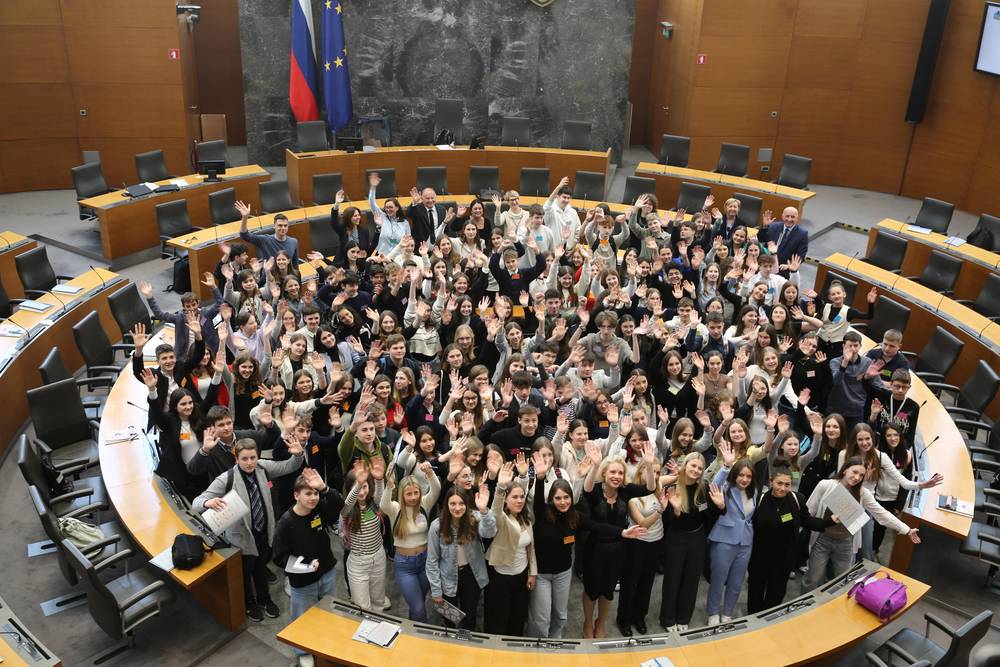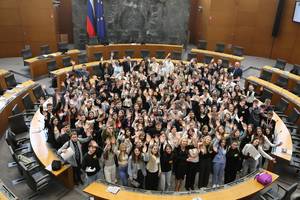At the 35th National Children's Parliament, which took place today, 7 April 2025, in the National Assembly, the Deputy Ombudsman, Dr. Jože Ruparčič, highlighted the importance of safety and non-violence in the school environment as fundamental conditions for the personal and educational development of children. He also spoke with great concern about the increase in peer violence – physical, psychological, and online violence.
He focused on three key values – non-violent communication, tolerance. and respect for dignity – which, in his opinion, are essential for establishing a stimulating and inclusive learning environment. Non-violent communication encourages the expression of emotions and needs without judgment and enables an open, empathetic, and respectful exchange of opinions. According to Dr. Ruparčič, this form of communication prevents conflicts and strengthens connections between students. Tolerance is the foundation for accepting diversity – cultural, religious, ethnic, and personal. In the school environment, it means respecting diversity and rejecting discrimination. “When we accept differences, we reduce the likelihood of conflicts related to prejudice and build an inclusive environment,” he emphasised. Respecting dignity means treating everyone with a sense of equality and consideration, regardless of their characteristics, and it directly affects the self-confidence, mental health and well-being of children, he said.
Deputy Ombudsman Ruparčič also specifically pointed out that it is essential that the voice of children is heard in the school environment. "It is very important that your voice is heard in the school environment – that we adults know how you feel, what your wishes and goals are. This is also guaranteed to you by the Convention on the Rights of the Child," he said and called on the children, as representatives of school parliaments, to encourage their classmates to express their wishes and needs in an effective manner.
He also expressed concern about the increase in peer violence. He stressed that violence among children is a serious problem that has profound consequences, so it is essential to talk about it openly. He called for a joint effort by teachers, parents, school leaders, and all children to recognise violence, speak out about it, and take appropriate action. "Every victim has the right to a safe environment, and every community has a duty to enable this," he warned, adding that preventing violence is the responsibility of the entire society – "both adults and you, children and young people, who are an important part of the solution." He also stressed that we should not forget those who cause violence – they too often need help, conversation, and guidance, as their actions may be a reflection of their own hardships, misunderstandings, or problems growing up. "Only by understanding all aspects of violence can we build a safer, more connected, and compassionate community," Dr. Ruparčič believes.
He concluded by saying that non-violent communication, tolerance, and respect for dignity are not just ideals, but concrete tools that enable school to become a place of personal growth, creativity, and cooperation. He expressed to the children his wish that they are able to progress in such an environment – both in school and in life.

